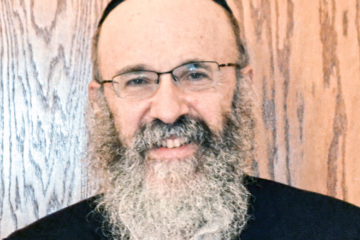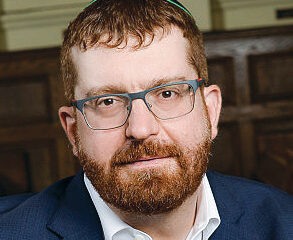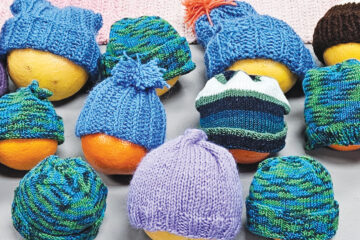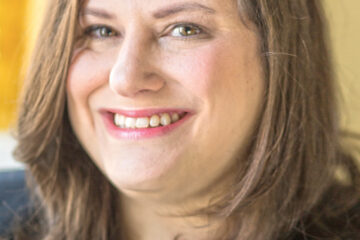Responsible for each other
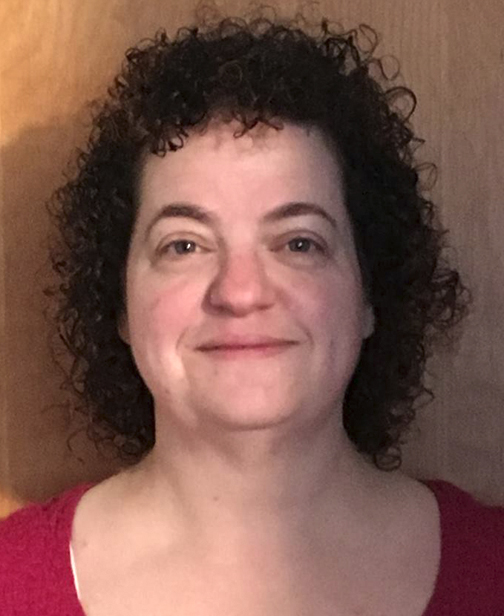
By Rabbi Haviva Horvitz
Temple Beth Sholom
Have you ever completed reading a book or a series of books and immediately commenced reading it again? Did you notice something the second or third time that you hadn’t quite comprehended the first time?
I have found that sometimes, foreshadowing isn’t obvious and thus requires rereading. This recently happened to me in my reading of the Torah.
We read a portion of the Torah each week, and upon completion of reading the Five Books, we immediately begin again.
One would think then that after a few years, there would be no more surprises.
Personally, I go beyond the weekly reading and spend a great deal of time studying many of the lessons and commentaries.
However, only recently did I notice the foreshadowing from the first book, Bereshit (Genesis), to the second book, Shemot (Exodus).
Early in the first book (Gen. 4:1-18), we learn of Cain and Abel, the sons of Adam and Eve. Cain was a farmer and Abel was a shepherd.
Although they each offered sacrifices to the Almighty, Cain brought inferior produce of the ground, while Abel brought of the fattest and best of his flock.
Abel’s offering was appreciated, but Cain’s was ignored. Understandably, Cain was angry, and instead of listening to God’s advice and warnings, he killed his brother.

When asked “Where is your brother Abel?” Cain responded, “I do not know. Am I my brother’s keeper?”
Obviously, Cain did not take responsibility for his actions. Therefore, he was punished; the ground no longer gave its full fertile strength to him, and he became a perpetual wanderer in the world. The reader learns very little more about Cain who is never heard of again after this Torah portion.
Later, in Chapter Two of the book of Shemot, we are introduced to Yocheved and Amram. The rabbis explain that this couple, while married, lived separately to avoid Pharaoh’s decree that all newborn baby boys were to be drowned.
They reunited, following the advice of their daughter, Miriam, who believed that while Pharaoh’s decree only affected the males — by separating and having no more children — her parents were preventing the birth of the females as well.
Yocheved conceived and gave birth to a son, whom she hid for three months. At that time, she put him in a basket and placed it among the rushes near the bank of the Nile River.
Miriam stationed herself nearby and literally became her brother’s keeper. She watched him from a safe distance and, when Pharaoh’s daughter found the basket, Miriam ran to her and offered to find a Hebrew wet nurse for the child. Thanks to Miriam, Yocheved was then compensated for nursing her own son.
This is not the last we hear of these siblings. We learn of their lives, their sufferings, their joys, their errors, their punishments, and all that they did for the Children of Israel.
Miriam continued to care for Moses and helped him throughout her life, and we continue to learn about her until her death.
The Torah is filled with many stories of siblings and their relationships, but it is from the juxtaposition specifically of these two stories and the concept of being a brother’s keeper that I realized the lesson: We are not alone in this world, and we are supposed to care for one another.
In the Talmud (the primary text of the Oral Law), in Tractate Shavuot, Page 39a, there is a discussion of the domino effect of sin, which concludes with the Aramaic phrase, Kol Yisrael arevim zeh bazeh, which means all of Israel is responsible for each other.
This phrase is considered by some to be the basis of the notion of communal responsibility in Jewish law.
Simply by the virtue of being a Jew, one is responsible for the wellbeing of other Jews. In today’s world, many have reached beyond simply helping other Jews, and we help all those in need.
That is why it did not surprise me to learn that even while Israel is fighting a war at home against Hamas, it sent humanitarian aid and disaster relief to areas of Myanmar and Thailand within hours of a deadly 7.7 magnitude earthquake on March 28.
As we honor our heritage and forge a community defined by unity and concern for one another, may we be reminded that every act of kindness and caring bonds us together, inspiring us all to stand in support of Israel and nurture a world filled with hope and peace.
To read the complete June 2025 Dayton Jewish Observer, click here.


